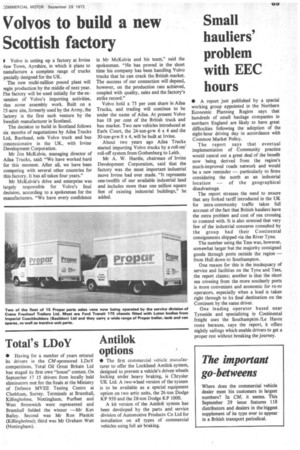Small hauliers' problem with EEC hours
Page 351

If you've noticed an error in this article please click here to report it so we can fix it.
• A report just published by a special working group appointed in the Northern Economic Planning Region says that hundreds of small haulage companies in northern England are likely to have great difficulties following the adoption of the eight-hour driving day in accordance with Common Market Policy.
The report says that eventual implementation of Community practice would cancel out a great deal of the benefit now being derived from the region's much-improved roads network and would be a new reminder — particularly to firms considering the north as an industrial location — of the geographical disadvantage.
The report stresses the need to ensure that any forked tariff introduced in the UK for intra-community traffic takes full account of the fact that British hauliers have the extra problem and cost of sea crossing to contend with. It is also stressed that very few of the industrial concerns consulted by the group had their Continental consignments shipped via the River Tyne.
The number using the Tees was, however, somewhat larger but the majority consigned goods through ports outside the region — from Hull down to Southampton.
One reason for this is the inadequacy of service and facilities on the Tyne and Tees, the report claims; another is that the short sea crossing from the more southerly ports is more convenient and economic for ro-ro operators, especially when a load is taken right through to its final destination on the Continent by the same driver.
One leading operator based near Tyneside and specializing in Continental freight uses the Southampton !Le Havre route because, says the report, it offers nightly sailings which enable drivers to get a proper rest without breaking the journey.
































































































































































































































































































































































































































































































































